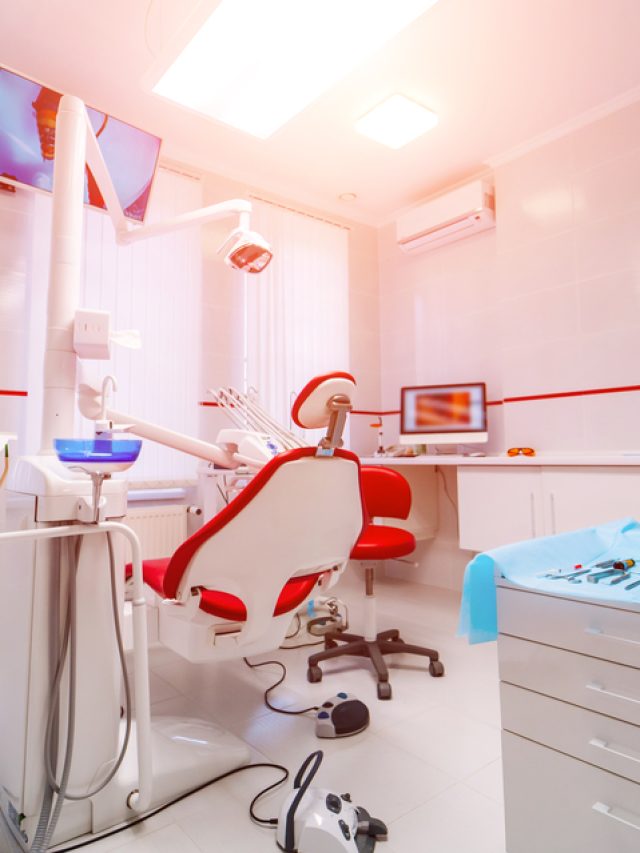TMJ specialist in Franklin, Ohio offers relief for TMJ headaches
Patients who experience pain in the jaw when eating or yawning, clicking sounds in their ears, or headaches may be suffering from TMJ disorder. These patients often seek help from a TMJ specialist. With a location in Franklin, Ohio, the team at K&E Advanced Dentistry offer relief for TMJ dysfunction symptoms.

Jaw tightness is experienced by many patients at some point in their lives. This tightness is often caused by stress or overworking the jaw. For some patients, the pain is lingering. This may be caused by problems with the temporomandibular joint (TMJ). When this joint does not work properly, patients may suffer symptoms of temporomandibular disorder (TMD). Symptoms may include pain, headaches, or clicking sounds. Our team of specialists understand the jaw joint, its function, and the discomfort and problems caused by TMD. We can help you find relief.
What is TMJ?
The temporomandibular joint is the connection where the temporal bones and jaw meet. When this joint is properly lubricated and smooth, it functions normally, allowing your jaw to open and close and move side to side with minimal vibration or pain. Trauma, stress, or certain conditions can lead to the degradation of this joint. When dysfunction or problems occur, this is known as temporomandibular disorder (TMD).
Understanding your symptoms

Every case of TMD is different. Pain by the ears and clicking or popping sounds when you open and close your mouth are the most common symptoms, but every patient is unique. Other common symptoms of TMD may include:
- Headaches
- Pain behind the eyes
- Discomfort when yawning or opening your mouth widely
- Pain near your ears when eating
- Locking or frozen jaws
- Tenderness in the jaw muscles
Causes
Problems with the temporomandibular joint are often caused by overworking, or putting stress on, the jaw. Clenching your jaw or grinding your teeth can be the culprit for the added stress. Grinding your teeth sounds like something that can be controlled, but in many cases, it cannot be prevented. Some patients grind their teeth subconsciously, or even while sleeping, when they are unaware of the action.
Treatment options
 Before treating your condition, the underlying cause must be determined. At K&E Advanced Dentistry, we utilize the advanced diagnostic techniques of the joint vibration analysis system from BioJVA. With this system, we can determine the level of jaw dysfunction.
Before treating your condition, the underlying cause must be determined. At K&E Advanced Dentistry, we utilize the advanced diagnostic techniques of the joint vibration analysis system from BioJVA. With this system, we can determine the level of jaw dysfunction.
For patients with minimal dysfunction and vibration, relief may be found in resting the jaw, eating soft foods, or not overextending the mouth. Training yourself to work your jaw differently or in smaller movements may relieve the stress. Others find lifestyle changes helpful. This may include avoiding tough foods or utilizing relaxation techniques as an outlet for stress.
Patients who continue to grind their teeth or clench their jaw, particularly while sleeping, may benefit from using an oral appliance. Similar to a mouth guard, an oral appliance protects the teeth from the wear and tear of grinding them. It also relieves pressure on the jaw and reduces muscle tension. The result is alleviated pain and symptoms. Say goodbye to your headaches, ear and jaw pain, and joint tenderness.
Each patient is unique. The same treatment may not work for everyone. Using our advanced diagnostic techniques and a thorough examination, we can customize a treatment plan to help you find relief. A combination of treatments may be necessary to get optimal results. Treatment possibilities may include any of the following:
- Resting the jaw
- Home-based physical therapy
- Wearing an oral appliance at night
- Home remedies such as cold compresses or over-the-counter pain medications
- Biofeedback to alert you to improper jaw movements and to teach you proper actions
- Lifestyle changes to find a healthy outlet for stress
Early diagnosis and treatment are keys to easing your pain. Let the professional team at K&E Advanced Dentistry help you get relief so you can eat and speak normally again. Call (855) 912-7677 for information.
Back to TMJ/TMD Page











